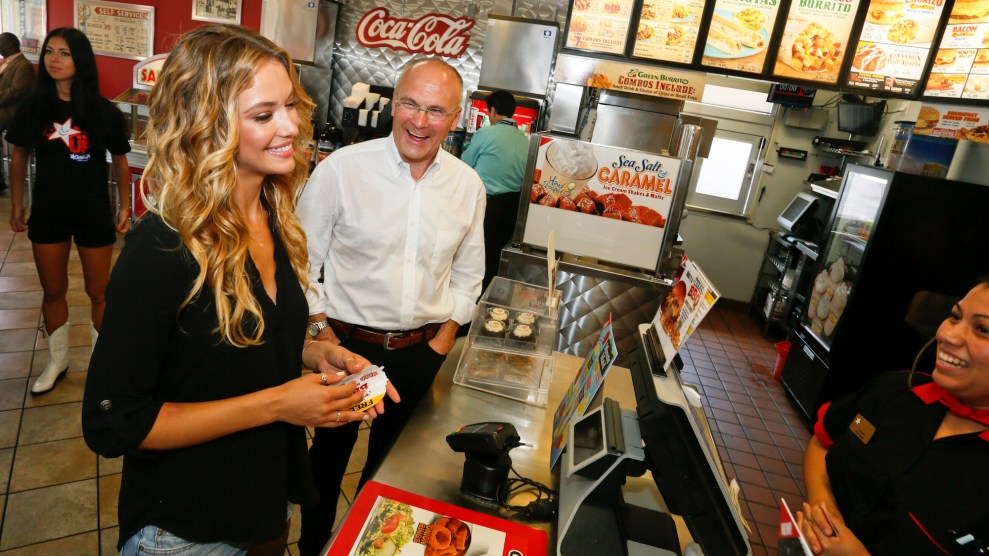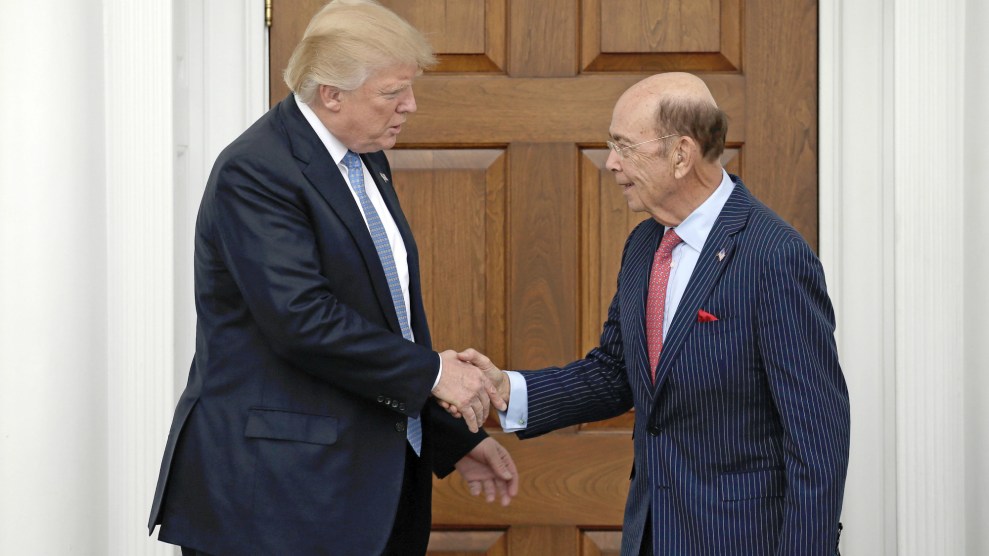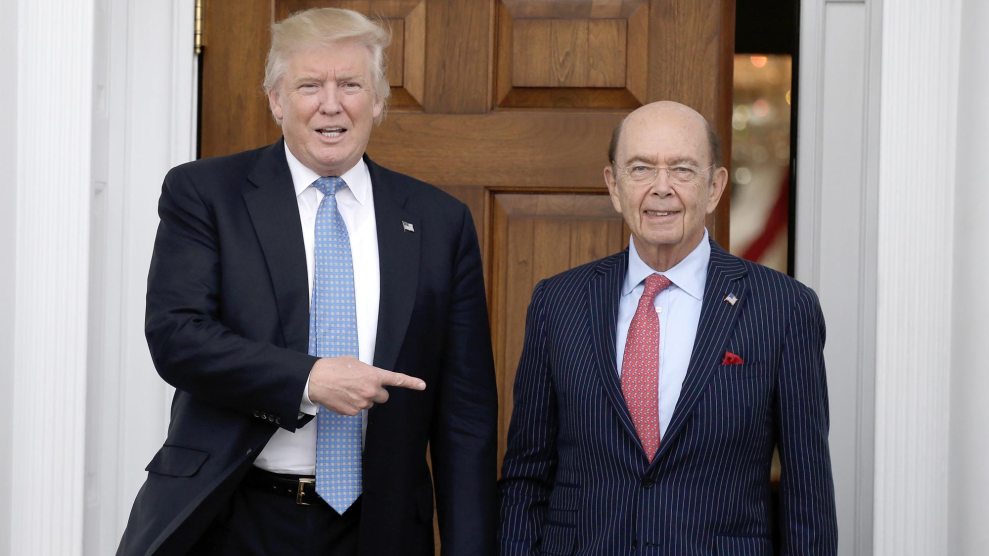
In an economic policy speech at the Detroit Economic Club in August 2016, Donald Trump repeated a promise he’d made many times on the campaign trail: “The rich will pay their fair share.” He went on to explain that his reform “will eliminate the carried interest deduction and other special interest loopholes that have been so good for Wall Street investors, and for people like me, but unfair to American workers.”
Trump’s promises to reform taxes to aid regular Americans undoubtedly helped him win in November. But earlier this month, he announced the appointment of the members of his President’s Strategic and Policy Forum, a group of 16 business leaders who will advise him on government policy regarding economic growth and jobs. The head of that group is billionaire Stephen Schwarzman, the chairman and CEO of the Blackstone investment juggernaut. In 2016, he was ranked the 113th richest person in the world, and Blackstone, in which he holds a roughly 20 percent stake, is one of the largest private equity management firms in America. He also happens to be one of the biggest proponents of the carried-interest deduction that helps create and enrich billionaires—the very loophole Trump vowed to close during his campaign.
The carried-interest deduction works like this: People who manage the investments of others—usually private equity bosses—are often paid with a cut of the investment profits. Under the loophole, they are taxed on those earnings as if they were capital gains, not personal income, which has a much higher rate. Sometimes referred to as the “billionaire’s loophole,” Alec MacGillis for The New Yorker wrote, it “has helped private equity become one of the most lucrative sectors of the financial industry.”
As a private equity heavyweight, Blackstone has been a main beneficiary of the carried-interest deduction. In March 2007, Blackstone earned $4 billion for its managers when it went public. The initial public offering caused a public uproar because it was largely based on the favorable tax treatment of carried interest. A few months later, Schwarzman placed a call to Leo Hindery, a fellow private equity fund manager, the night before Hindery was set to testify before Congress about closing the carried-interest tax loophole. According to Hindery, Schwarzman called him “a traitor.”
Schwarzman later solidified his stance as a staunch proponent of the tax deduction in July 2010, when he compared the Obama administration’s efforts to close the loophole—Obama’s 2010 budget proposal called for changing the carried-interest tax deduction—to the Third Reich. “It’s a war,” Schwarzman said at the board meeting of an unnamed charity. “It’s like when Hitler invaded Poland in 1939.” Schwarzman was widely criticized for the comments, including by Vice President Joe Biden.
Then in August 2011, billionaire investor Warren Buffett wrote an op-ed for the New York Times in which he called for closing the carried-interest deduction, noting that thanks to the loophole, his tax rate that year had been lower than that of any of his office employees. Schwarzman went on CNBC to counter Buffett’s argument, saying he was paying a combined federal and state tax rate of 53 percent. “I’m not feeling undertaxed,” he said. (The Times pointed out that Schwarzman likely hadn’t received much carried-interest-eligible income that year, since many of the investments managed by his company were still recovering from the financial crisis.) In response to a question about Trump’s promise to close the carried-interest loophole last September, Schwarzman implied that he’d be okay with it—only as part of a general move toward a flat tax, a move that would also disproportionately benefit the uber-rich.
Schwarzman has also long been a generous Republican donor, donating more than $790,000 in the 2016 cycle to down-ballot races and PACs dedicated to maintaining a GOP legislative majority. (He did not donate to the Trump campaign.) But now, he and his compatriots will certainly have Trump’s ear: Their first meeting is set to happen at the White House in February—just weeks into the first term of President Trump.













